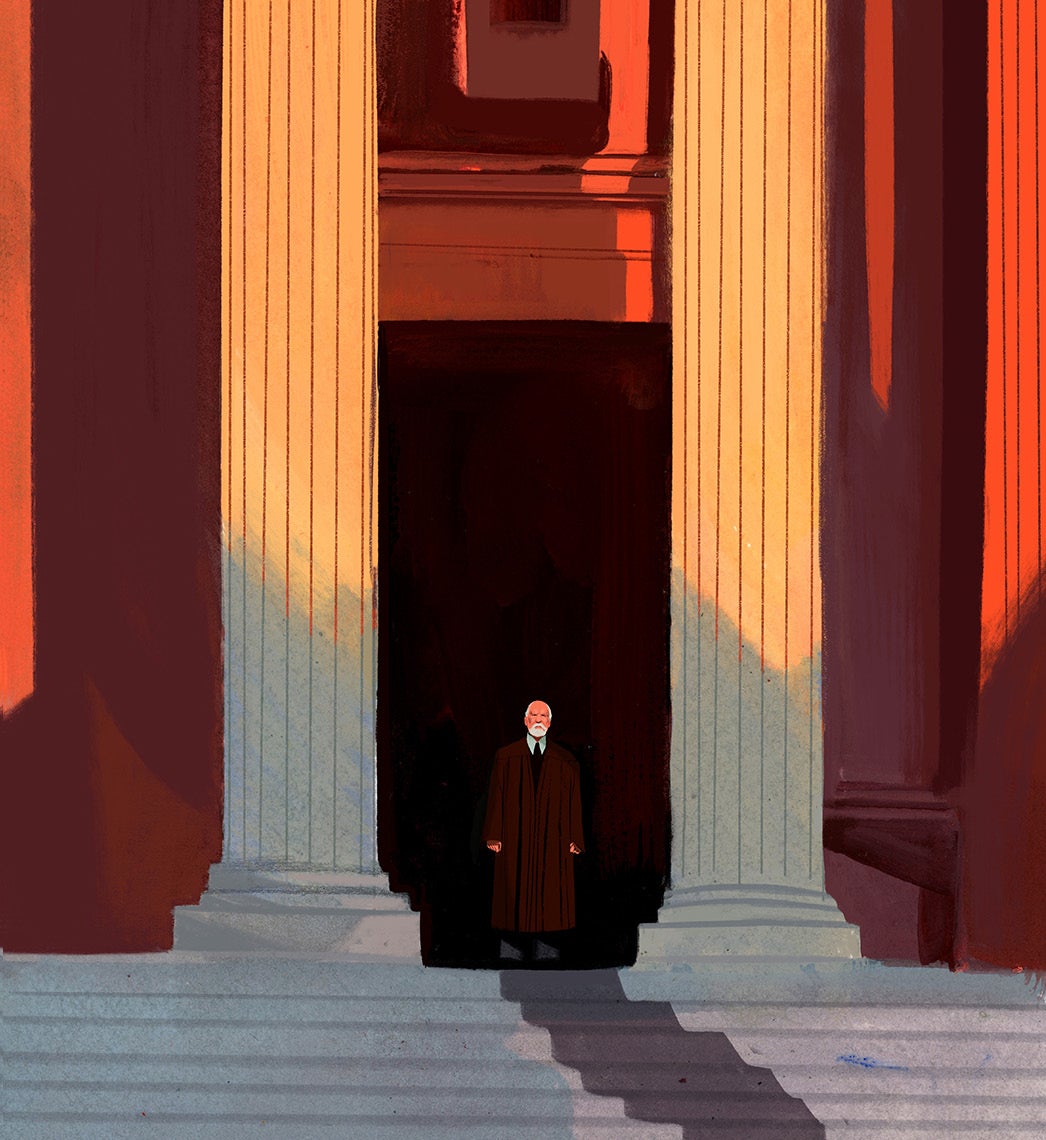The Hughes Court: From Progressivism to Pluralism, 1930 to 1941,” by Mark Tushnet (Cambridge University Press)
Mark Tushnet focuses on the Supreme Court era best known for President Roosevelt’s court-packing plan, a response to rulings that determined that New Deal legislation was unconstitutional. The comprehensive analysis of the Court and its decisions under Chief Justice Charles Evan Hughes covers cases chronologically and thematically, including how they affected economics and civil rights during the era. While in large measure a progressive Court committed to a vision of activist government, the Hughes Court also could be reactionary, Tushnet, a professor emeritus at HLS, writes. He contends that the tenure of the Hughes Court led to a new approach to government, which he calls “interest-group pluralism,” that transformed constitutional law in the years that followed.
“Missing the Target: Why Stock-Market Short-Termism Is Not the Problem,” by Mark Roe ’75 (Oxford University Press)
People from both political parties are concerned about how much emphasis is placed on achieving immediate stock market gains rather than future earnings and growth, with Democrats saying “short-termism” costs jobs and environmental sustainability and Republicans arguing that it harms economic performance. Both sides are wrong, says Professor Mark Roe, who teaches corporate law and corporate bankruptcy at HLS. He argues that making corporations more long-term focused will have little impact on these issues. For example, a lack of corporate respect for the environment is due to the ability to pass the cost of environmental damage on to others, not to individual firms’ shortened time horizons. He notes that “a firm can be long-term and selfish, or it can be short-term and generous.”

“The United States’ Defend Forward Cyber Strategy: A Comprehensive Legal Assessment,” edited by Jack Goldsmith (Oxford University Press)
During the previous decade, the United States became vulnerable to cyberattacks, writes HLS Professor Jack Goldsmith, because of concerns that responding to the attacks might lead to escalation and because of perceived legal constraints. After a series of hostile cyber-operations against the U.S., the Defense Department in recent years implemented a “Defend Forward” strategy, a more assertive policy that involves action against cyber-infrastructures of adversaries. The volume brings together legal and policy experts to provide the first comprehensive account of the strategy and its legal implications. Chapters examine the history and theory of Defend Forward, Congress’ role in authorizing its operations, and the constitutional issues it brings up, as well as international law issues.
